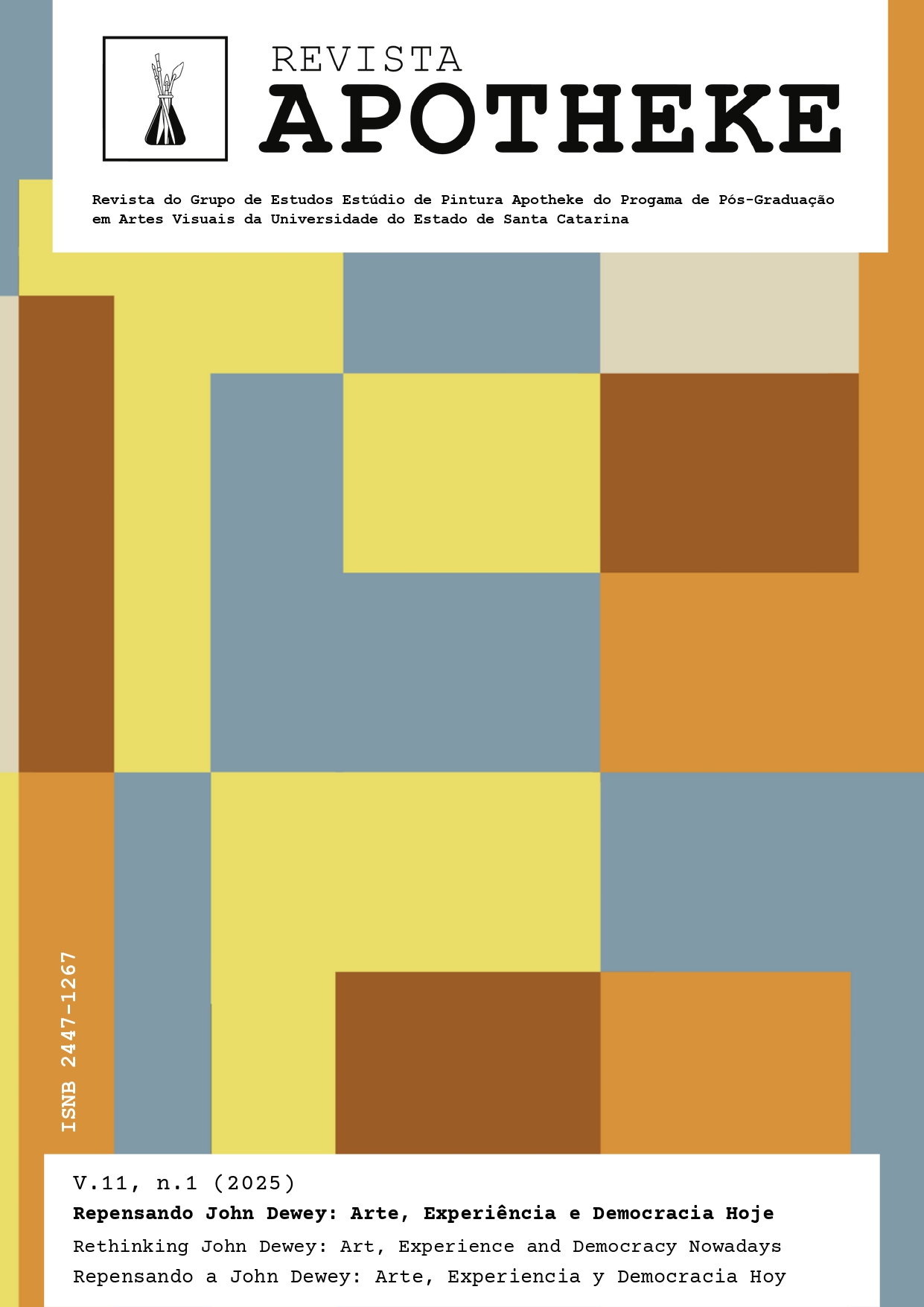John Dewey’s perspective on experience, technology and learning: a contemporary study
DOI:
https://doi.org/10.5965/244712671112025052Keywords:
John Dewey, Education, Technology, LearningAbstract
This article analyzes the thinking of the American philosopher John Dewey and how his ideas can still influence contemporary education, which is largely permeated by technological artifacts. We suggest interpreting Dewey’s theory of inquiry from a technological perspective. To this end, we adopt a broader view of technology, seen not only as a set of devices, but as any tool, physical or theoretical, built to solve problems. In this sense, we emphasize that meaningful learning will only occur when inserted in contexts of construction and use of these technological artifacts, both physical and theoretical. This is what we call the “technological cycle of learning”. We also argue that this process necessarily involves the search for problem-solving in a context of problematization, investigation and collaboration.
Downloads
References
ARGOLO, Eráclito de Souza. Trajetórias conceituais intencionais de ensino e aprendizagem: investigação em fluxo temporal em espaços e contextos nos processos educacionais em EaD. 2016. Tese. Doutorado em Informática na Educação pela Universidade Federal do Rio Grande do Sul - UFRGS. DINTER. 2016.
BANNEN, Mike. Just a Tool? John Dewey’s Pragmatic Instrumentalism and Educational Technology. 2018 (Submitted to the graduate degree program in Social & Cultural Studies in Education and the Graduate Faculty of the University of Kansas in partial fulfillment of the requirements for the degree of Doctor of Philosophy). 2018
COPE, B.; KALANTZIS, M. Ubiquitous-learning. An agenda for educational transformation. In: KIDD, T.; CHEN, I. (Ed.). Ubiquitous Learning: strategies for Pedagogy, course design and technology. USA: Information Age Publishing Inc, 2011.
COPE, Bill; KALANTZIS, Mary. The Things you do to know: an introduction to the pedagogy of multiliteracies. In: Cope, Bill; Kalantzis, Mary (Orgs.). A pedagogy of multiliteracies: Learning by design. Springer, 2015.
CUBAN, L. Oversold and Underused: Computers in the Classroom. Cambridge, MA: Harvard University Press. 2001.
DEWEY, John. Arte como experiência. São Paulo: Martins Fontes, 2010.
DEWEY, John. Interest and Effort in Education. Cambridge - Massachusetts: The Riverside Press Cambridge, 1913.
DEWEY, John. Essays In Experimental Logic. The University Of Chicago, Illinois. The University Of Chicago Press, 1916
DEWEY, John. Problems of men. New York : Philosophical Library, 1946
DEWEY, John. Experiência e educação. 2.ed. São Paulo: Companhia Editora Nacional, 1976.
DEWEY, John. Democracia e Educação. Trad. G. Rangel e A. Teixeira. São Paulo: Companhia Editora Nacional, 1979.
HICKMAN, Larry (1991): John Dewey’s Pragmatic Technology. Indiana, USA: Indiana University Press, 1990.
MORAN, José Manuel. A educação que desejamos: novos desafios e como chegar lá. Campinas: Papirus, 2007.
Downloads
Published
How to Cite
Issue
Section
License
Copyright (c) 2025 Fernando Mariano Placides, José Wilson da Costa

This work is licensed under a Creative Commons Attribution-NonCommercial 4.0 International License.
Copyright and Licensing Policy
Authors of works submitted to Revista APOTHEKE authorize their publication in both print and digital formats exclusively for academic purposes. Reproduction is permitted, provided that the source is properly cited. Authors confirm the originality, authorship, and unpublished status of their manuscripts.
Articles published by the journal are freely available and intended for academic and non-commercial use only. All copyrights are transferred to the journal. The content of signed articles reflects the views of their respective authors and not the official position of Revista Apotheke. The author(s) agree to always cite the following reference when republishing or referring to the content originally published in Revista Apotheke:
“This article was originally published by Revista Apotheke in volume (insert volume), number (insert number), year (insert year), and is available at: http://www.revistas.udesc.br/index.php/APOTHEKE/index”
It is the sole responsibility of the authors to obtain written permission for the use of any material protected by copyright law included in their articles. Revista Apotheke is not responsible for copyright infringements committed by contributors.
Authors retain copyright and grant the journal the right of first publication, with the work licensed under a Creative Commons Attribution-NonCommercial License (CC BY-NC):
-
Attribution (BY): Licensees are allowed to copy, distribute, display, perform, and create derivative works, provided that proper credit is given to the author or licensor, in the manner specified.
-
NonCommercial (NC): Licensees may use the material only for non-commercial purposes.
After publication, authors retain the rights to their work and may republish the text.



